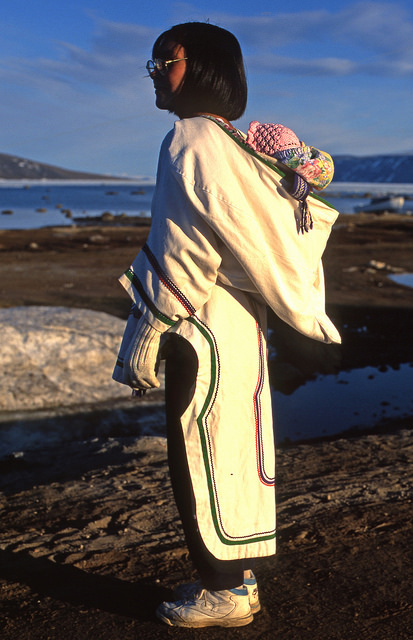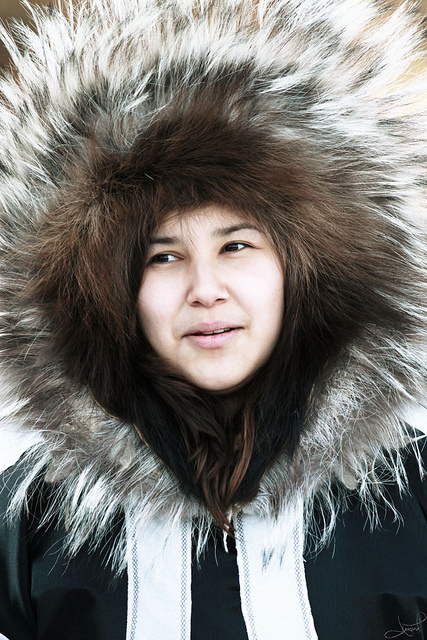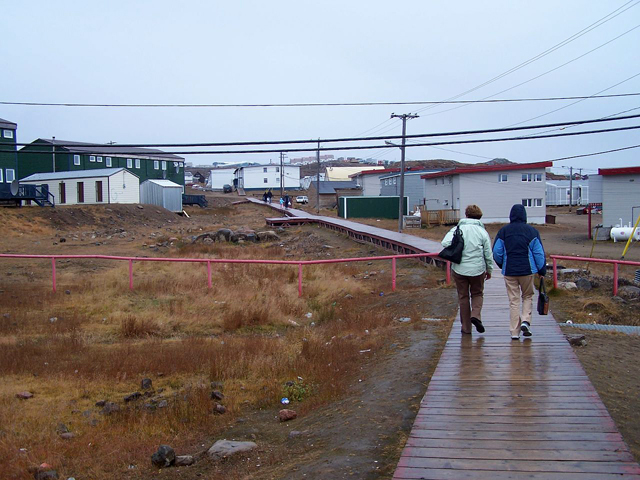Last Thursday, CBC News celebrated Valentine’s Day by posting a story about a woman who has formed a matchmaking Facebook group for Inuit singles. The report gives an impression of the difficulties some Inuit singles experience in meeting eligible partners.

Angela Aula started the new group in January from her home in Toronto, calling it Uvanga Amma Ivvi, or, in English, the Casual Dating Group. She has lived in the city for 25 years and realizes she has an advantage over other Inuit who live in Nunavut. For the first eight years of her life she lived in Hall Beach, an isolated community in the territory with under 900 inhabitants, so she is quite familiar with remote conditions.
Living in a city, she says she can meet people at a local burger joint while folks in the remote villages are separated by vast distances from finding eligible possibilities for dates. Ms. Aula met her partner 11 years ago at a McDonald’s and they now have two children. Like other Inuit in the cities of Canada’s South, she could hang out in coffee shops and easily meet strangers—or check out the possibilities for dates if she should so wish on dating apps. The people in many villages across the North can’t do that.

So she decided to do something about it. Rather than design an app, however, she wanted to use Facebook, a platform that is widely used in the North. The Inuit already participate in FB groups, she realized, such as one called Inuit Hunting Stories of the Day, and she felt that a dating group would be more readily acceptable than a new app. So far her group has attracted 300 members.
It is a private group and she asks potential members if they are over 18, single, and Inuit before approving their memberships. However, she does not pry into their lives—she has no idea how many dates have happened as a result of her group. So far, some people have formed break-out groups, such as subgroups for members of different age categories, for people living in different regions of the North, and for LGBTQ people.

The reporter interviewed Alexia Cousins from Iqaluit, the community that serves as the capital of Nunavut. A 30-year-old woman with one daughter, Ms. Cousins finds it hard to date successfully, even though Iqaluit is a small city of less than 8,000, since she is related to a large proportion—60 or 70 percent, she says—of the Inuit population there. She finds that the dating scene is difficult since people who show up for a date or who try to buy her a drink in a bar are often already in a relationship. She has also lived in New Brunswick and Toronto, where there “is a bigger pile to pick from,” she explains, so dating is easier in the South.
However, Ms. Cousins has not as yet joined the Facebook group. She acknowledges that it would be possible to meet new people with it, but Nunavut is huge and airfare is quite expensive for those who would like to travel around the territory. Also, she’s not had any luck from online dating so she is going to stick with trying to meet people offline. But just for fun, she loaded Tinder, a prominent matchmaking app, on her phone. The only possibility it came up with was a guy who lives 2,000 kilometers away. He said he just wanted to stay warm during the winter. So much for Tinder.